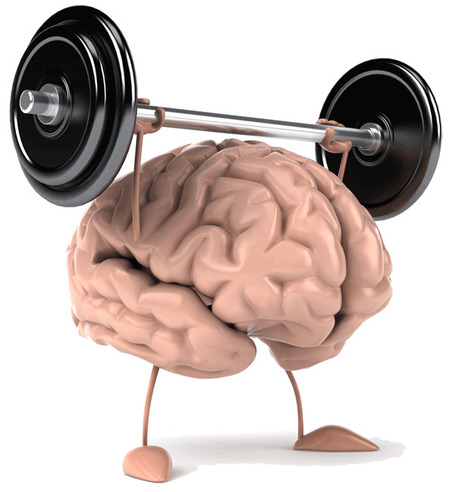You see, I've been focusing a lot on enhancing the Body.
Train smart, eat smart...that kind of stuff. Yes it's solid advice and yes, it
provides results. But I've been ignoring an underlying element: the Mind.
“Eat Well, Think Well, Move Well”
I first heard the above words uttered by a very knowledgeable
chiropractor and right away I thought, “This guy's a genius. He has simplified
health, fitness, and lifestyle success to six words!”
I adopted and practiced this
philosophy and saw great results. But something was missing. I ate well. I
trained well. But was I truly THINKING well? Up until recently the answer was a
resounding no.
Okay, And Your Point Is?
My point is that it all begins with
the Mind. If you hope to be successful in your health, fitness, and life goals,
you must FIRST STRENGTHEN YOUR MIND. So how do you go about strengthening your
mind?
Think of the Mind as the command
center or central processing unit. It's the General, the King, the CEO.
Think of the Body as the physical
organism. If this organism is the puppet, the Mind is the puppeteer. Hopefully
you are starting to understand the roles, given all the awesome analogies I'm
providing.
You should begin to realize that
the stronger the Mind is, the more powerful the Body can be. The better the
leader is, the better the company can and will be.
Strengthening Your Mind: The Unlimited
Power of Thoughts
Remember that part about “thinking
well”? Now we have arrived to it. Strengthening the Mind involves thinking
POWERFUL and POSTIVE thoughts.
It is well-documented that our
thoughts and beliefs actually affect our genes and how they are expressed
within the organism. Genes are like blueprints for the Body. This gets into the
field of Epigenetics and Energy Medicine on which books have been written. If
you are interested in learning more, I highly recommend Bruce Lipton's The
Biology of Belief.
The basic principle, however, is
this: if you are constantly thinking about your strengths and looking at the
positive in any situation, you will actually manifest those qualities. There
will be no room for negative thoughts and therefore the positive thoughts which
are dominant will begin to prodice higher energy, better mood, and greater
motivation.
Feeding The Mind & Body: A
Reward System for Success
Just as the Body requires nutrients
to survive and thrive, the Mind also needs “food” to grow and function optimally.
It starts to make sense when you find yourself with more food cravings during
very stressful or frustrating times. This is the Mind telling you that it's
starving and needs to be fed and rewarded.
Once you understand that both
entities require daily nourishment, you can give yourself the proper rewards to
live a healthy lifestyle and achieve the body you want, without going insane in
the process.
Below I've listed some examples of
food for the Mind and Body.
Mind Food Essentials
* Positive thoughts/empowering
beliefs
* Top 3 favorite foods (what food
can you not live without?)
* Social occasions (getting
together with friends)
* Watching uplifting movies
* Reading thought provoking books
* Listening to inspiring music
Body Food Essentials
* Exercise (sports,
weight-training, cardiovascular training)
* Nutrient-dense foods
* Certain supplements (fish oil,
multivitamin, protein powder)
Important for Both
* Relaxation techniques (breathing,
meditation, etc.)
* Yoga & other recovery
exercise
* Massage
* Acupuncture
* Deep sleep
* Power naps
Wrap-up
As we can see, the Mind leads the
Body and therefore should be strengthened in order to achieve a better and
healthier body. Therefore, strengthening the Mind is just as important as, and
should by no means be sacrificed for, strengthening the body.
To do this, we must “feed” the mind
with powerful and positive thoughts along with mind-nourishing activities. In
the end, it’s all about balance. We must nourish both our bodies and our minds
each day. An example is getting a good night’s
sleep, and then making sure we read a book and exercising during the day.
If we can focus our efforts both of
these areas, we can enhance our ability to achieve any goal we set our mind and
body to. To the feast!




